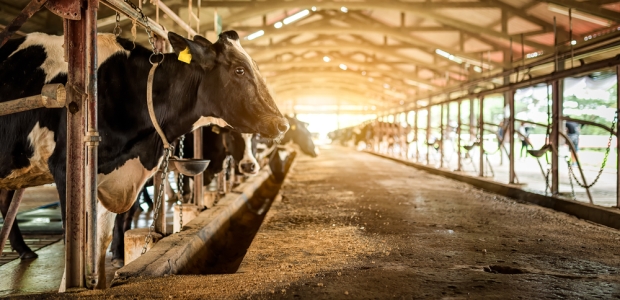
Ammonia Emissions Rising, UK Environment Agency Reports
"Urgent action is needed if we are going to tackle the hidden blight of ammonia emissions. These emissions are having a detrimental impact on the environment, precious habitats, and wildlife. As custodians of the land, farmers must take the lead by changing their land management practices," said Emma Howard Boyd, chair of the agency.
The UK Environment Agency recently published its first-ever report on England's air quality, noting in it that rising ammonia emissions are damaging wildlife and habitats. Unlike other main air pollutants, emissions of ammonia have increased since 2013, it said.
Ammonia deposition can overload land and water with nitrogen; it acidifies soils, natural habitats, and freshwater. These effects reduce biodiversity in sensitive habitats creating a knock-on effect for wildflower species and aquatic and insect life. The report shows 95 percent of England's nitrogen-sensitive habitats are being affected by nitrogen deposition.
Some 88 percent of UK ammonia emissions come from the agricultural sector as a result of such activities as fertilizer use and slurry storage. Higher concentrations and deposition levels are associated with areas of intensive livestock production, especially dairy and beef cattle.
The Environment Agency is urging farmers to change land management practices and become more nitrogen efficient, and it has published a new Code of Good Agricultural Practice in collaboration with farming organizations and DEFRA to help farmers improve their land management and reduce ammonia emissions.
"Urgent action is needed if we are going to tackle the hidden blight of ammonia emissions. These emissions are having a detrimental impact on the environment, precious habitats, and wildlife. As custodians of the land, farmers must take the lead by changing their land management practices," said Emma Howard Boyd, chair of the agency. "More broadly, poor air quality is bad for the environment, but also people's health and well-being. This report also shows the need to tackle the high levels of nitrogen dioxide, ozone, and particulate matter that persist in certain areas. Improvement to air quality is going to require action from nations, government at a national and local level, organizations, and communities – but just as importantly, individuals."
The report pointed out the huge improvements in air quality since 1970 in the UK:
- Nitrogen oxide (NOx) emissions have been reduced by 72 percent.
- Particulate matter (PM10) has fallen by 73 percent.
- Sulfur dioxide (SO2 ) has been reduced by 97 percent.
- Non-methane volatile organic compounds have been reduced by 66 percent